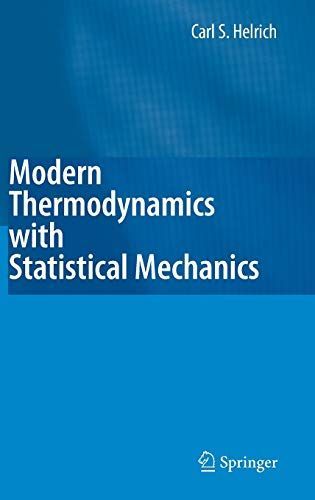
Modern Thermodynamics with Statistical Mechanics
Thermodynamics is not the oldest of sciences. Mechanics can make that claim. Thermodynamicsisaproductofsomeofthegreatestscienti?cmindsofthe19thand 20th centuries. But it is suf?ciently established that most authors of new textbooks in thermodynamics ?nd it necessary to justify their writing of yet another textbook. I ?nd this an unnecessary exercise because of the centrality of thermodynamics as a science in physics, chemistry, biology, and medicine. I do acknowledge, however, that instruction in thermodynamics often leaves the student in a confused state. My attempt in this book is to present thermodynamics in as simple and as uni?ed a form as possible. As teachers we identify the failures of our own teachers and attempt to correct them. Although I personally acknowledge with a deep gratitude the appreciation for thermodynamics that I found as an undergraduate, I also realize that my teachers did not convey to me the sweeping grandeur of thermodynamics. Speci?cally the s- plicity and the power that James Clerk Maxwell found in the methods of Gibbs were not part of my undergraduate experience. Unfortunately some modern authors also seem to miss this central theme, choosing instead to introduce the thermodynamic potentials as only useful functions at various points in the development.